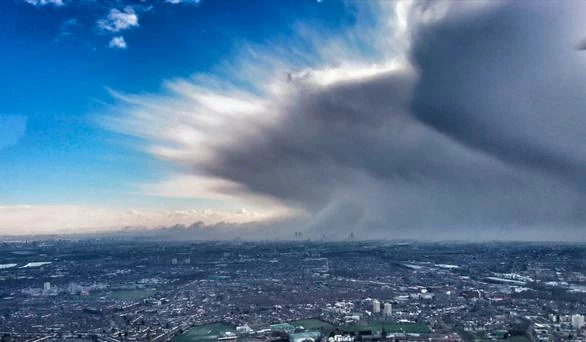
Partner Article
Will The Big Freeze break the UK’s remote access technologies?
The “Beast from the East” met Storm Emma last week, and as a result, most of the UK was plunged into a long-lasting, deep freeze.
As this impacted many daily routines and commutes, it most definitely caused general system overload. The dropping temperatures and general TfL meltdown means that many snowed in office workers have been working from the comfort of their warm homes. When large segments of the workforce attempt to access internal corporate applications from home, this can place a strain on existing remote access technologies. The winter weather has once again highlighted some of the key pitfalls associated with relying on network appliances.
“To provide remote access for employees, many organisations use some kind of VPN, which requires appliances, and user licenses are often tied to specific appliances” said Chris Hodson, EMEA CISO at Zscaler. “In the case of “the beast from the east”, the lack of flexibility to decouple licenses from appliances introduces complexity when it comes to accommodating the increased number of remote users. Network admins wind up having to manually move licenses around, do the math to ensure they have the right number of licenses in proportion to available hardware they have within their environment, and often end up scrambling to buy new licenses. If they don’t, they risk users not being able to work, reducing productivity for both the user as well as the business.”
Some of the major VPN vendors offer “In Case of Emergency Licenses” often referred to as ICE licenses. These are useful, but expensive and typically have an extremely short lifespan (couple weeks or less). ICE licenses essentially allow VPN appliances to operate at their maximum capacity for a set amount of time. However, admins often purchase ICE licenses, use only a subset of them during a disaster, save the rest for a later date, but then forget to switch off the ICE license once the “disaster” is over. The license then expires after a specified amount of time and when the next snow storm hits admins go to use their licenses but the ICE has melted away leaving the customer frustrated.
“The actual capacity of existing appliances becomes an important factor IT must think about,” added Hodson. “After all, it doesn’t matter how many licenses a company may have if their appliances can’t deal with the burden.”
The software-defined perimeter offers a new cloud-based approach to provide remote user access to internal applications that is completely different from the traditional DMZ. This modern network security method uses the cloud to provide the convenience, flexibility, and scale that network admins need when faced with weather conditions like those we are currently experiencing. Best of all, there are no VPN appliances necessary.
This was posted in Bdaily's Members' News section by Dave Barnes .
Enjoy the read? Get Bdaily delivered.
Sign up to receive our popular morning National email for free.








 A year of growth, collaboration and impact
A year of growth, collaboration and impact
 2000 reasons for North East business positivity
2000 reasons for North East business positivity
 How to make your growth strategy deliver in 2026
How to make your growth strategy deliver in 2026
 Powering a new wave of regional screen indies
Powering a new wave of regional screen indies
 A new year and a new outlook for property scene
A new year and a new outlook for property scene
 Zero per cent - but maximum brand exposure
Zero per cent - but maximum brand exposure
 We don’t talk about money stress enough
We don’t talk about money stress enough
 A year of resilience, growth and collaboration
A year of resilience, growth and collaboration
 Apprenticeships: Lower standards risk safety
Apprenticeships: Lower standards risk safety
 Keeping it reel: Creating video in an authenticity era
Keeping it reel: Creating video in an authenticity era
 Budget: Creating a more vibrant market economy
Budget: Creating a more vibrant market economy
 Celebrating excellence and community support
Celebrating excellence and community support